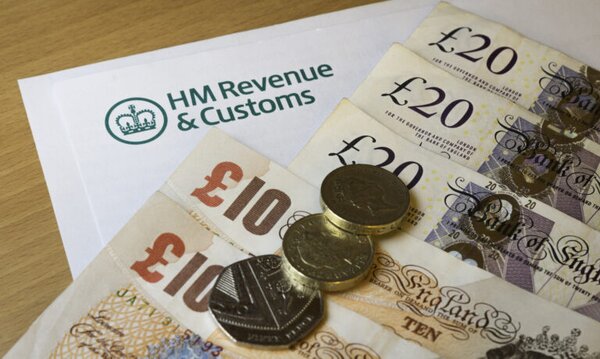Let’s Break This Down Together…
HMRC delays are becoming a real headache for taxpayers. If you’re waiting on a refund or reply, you’re definitely not imagining the slowdown.
In this guide, we walk through what’s causing these delays and which areas are being hit hardest. We’ll also explore filing deadlines, digital changes, and what you can do to stay ahead.
By the end, you’ll understand what’s going on and how to protect yourself from unnecessary stress or cash flow issues. Let’s dive in.
Introduction to Tax Processing Delays
Tax processing delays are becoming an increasing concern for both individuals and small businesses across the UK. The tax system, overseen by HM Revenue and Customs (HMRC), is designed to process tax refunds efficiently and keep the financial wheels turning. However, recent trends show that HMRC is taking much longer to process tax refunds, with some cases especially PAYE and CIS refunds dragging on for over four months.
These processing delays can create significant cash flow challenges, particularly for small businesses relying on timely CIS refunds to manage their operations. As HM Revenue works to address these issues, understanding the causes and potential solutions is essential for anyone navigating the UK tax system.
HMRC Delays: The New Normal?
HMRC processing delays are expected to continue into 2026, affecting millions of UK taxpayers. These aren’t just minor hiccups we’re talking about significant holdups that impact everything from tax refunds to enquiry responses.
The tax authority’s new digital systems were meant to speed things up. Unfortunately, the implementation has actually contributed to the growing backlog of cases.
Brexit-related tax changes have put extra strain on HMRC’s already stretched resources. Many departments are struggling to keep pace with increasing workloads. HMRC staff shortages and the allocation of extra staff have contributed to delays and affected overall service efficiency.
The backlog and delays have also led to long call waiting times for HMRC customer service, with average waits now exceeding 23 minutes, making it harder for taxpayers to get timely assistance.
The Public Accounts Committee has criticised HMRC for its handling of delays and continues to hold the department accountable for maintaining service standards.

What's Causing Delayed HMRC Processing and Tax Refunds Times 2026?
The average processing time for standard tax returns has jumped from 15 days to a whopping 38 days. This represents a 153% increase in waiting times for basic services.
If you’re waiting for a Self Assessment refund, prepare for up to 12 weeks of patience. This is more than double the previous 5-week standard that taxpayers were accustomed to. Delays in processing tax refunds are especially affecting those who have overpaid tax, with many individuals and small businesses waiting longer for refunds due to overpaid PAYE or National Insurance.
Correspondence response times have doubled across nearly all tax departments. Even simple queries might take months rather than weeks to receive an answer. HMRC is still processing claims received months ago, which has contributed to a significant backlog and further delays in handling refund requests, particularly those related to overpaid tax.
HMRC’s digital transformation sounds promising on paper. In reality, these system changes are causing temporary but significant slowdowns across all services.
Which Self Assessment Tax Return Areas Are Hit Hardest by Delays?
Self Assessment processing and refunds are experiencing the longest wait times by far. If you’re due a refund, you might be looking at a three-month wait instead of the usual four to six weeks.
VAT registration applications that once took around 10 days are now stretching beyond 30 days. This creates serious cash flow issues for new businesses waiting to become VAT-registered.
PAYE coding notices and tax code adjustments are facing significant backlogs too. Your tax code might remain incorrect for longer, potentially resulting in you paying the wrong amount of tax. Delays in the Construction Industry Scheme (CIS) are also impacting contractors and subcontractors, as HMRC’s slow processing of CIS tax refunds is causing cash flow problems for small construction businesses that rely on timely repayments.
Corporation Tax repayments are delayed by an average of 45 days. This creates potential nightmares for businesses counting on that money for operations or investment. York-based Equilibrium Accountants, for example, have reported experiencing lengthy wait times for PAYE and CIS refunds due to HMRC’s processing backlog.
For many small businesses and individuals, these delayed refunds can represent a potentially substantial sum, making the wait even more challenging.

Why Are HMRC Delays Happening in 2026?
Staff shortages are a major factor in the current delays. HMRC’s post-pandemic restructuring has left departments understaffed just as workloads are increasing. The Making Tax Digital initiative sounds brilliant in theory. However, system integration is causing headaches as different systems aren’t communicating properly, creating bottlenecks.
Brexit-related tax legislation changes have created layers of additional processing requirements. Every new form and procedure adds minutes to processing time, which quickly adds up. Enhanced cybersecurity measures are also slowing things down. While necessary to protect taxpayer data, these new verification processes add extra steps to previously straightforward procedures.
Taxpayers now need to use their HMRC sign in details more frequently and securely, which can make accessing services and completing tasks take longer.
Tax Filing and Payment Requirements
Staying on top of your tax filing and payment obligations is crucial to avoid unnecessary penalties and interest. The UK tax year runs from 6 April to 5 April, and the deadline for submitting your Self Assessment tax return and paying any tax owed is 31 January following the end of the tax year. For the 2024 to 2025 tax year, this means you must file your tax return and settle your tax bill by 31 January 2026.
If you’re new to Self Assessment, you’ll need to register with HMRC by 5 October 2025 to receive your Unique Taxpayer Reference (UTR). Using the checker tool on GOV.UK can help you determine if you need to complete a Self Assessment tax return.
Filing your tax return early not only gives you clarity on how much tax you owe but can also help reduce future payments if your income has dropped. Staying proactive with your assessment tax return ensures you meet all deadlines and avoid last-minute stress.
Streamlining Tax Filing with Digital Solutions
Making Tax Digital (MTD) is transforming the way taxpayers interact with the UK tax system. This HMRC initiative is designed to make tax filing more efficient and accurate by requiring eligible customers to keep digital records and submit quarterly summaries of their income and expenses.
By embracing digital records and regular reporting, MTD aims to reduce errors in tax calculations and give taxpayers a clearer picture of their tax obligations throughout the tax year. From 6 April 2026, sole traders and landlords with qualifying income over £50,000 will be required to use MTD for Income Tax, submitting quarterly summaries directly to HMRC.
If you fall into this category, HMRC is urging eligible customers to start preparing now by exploring digital record-keeping solutions and familiarising themselves with the new requirements. Guidance and support are available on GOV.UK to help you make a smooth transition to tax digital.

How Do HMRC Delays Affect You?
If you’re a business waiting for VAT or Corporation Tax refunds, these delays can seriously impact your cash flow. Some small businesses report having to take out loans to cover the gap. When refunds are delayed, paying tax bills on time becomes more challenging, increasing financial pressure and the risk of falling behind.
Financial planning becomes much harder when you can’t rely on timely processing. How do you budget effectively when you don’t know when HMRC will process your refund? Setting up regular payments can help manage your tax obligations during periods of uncertainty and reduce the risk of missing deadlines.
There’s also the risk of interest charges on delayed payments that weren’t processed promptly by HMRC. Even if the delay isn’t your fault, sorting it out takes time and effort. Delays can also lead to potential penalties for late payments if you miss important tax deadlines.
Last year, my client’s £12,000 VAT refund was delayed for nearly four months. This forced him to postpone purchasing essential equipment, ultimately costing him a major contract.
Many taxpayers are turning to professional tax advice just to navigate these delays. A good accountant can help, but their services add another expense to the mix.
HMRC Support and Resources
Navigating the tax system can be challenging, but HMRC offers a range of support and resources to help taxpayers manage their tax obligations. The HMRC app is a convenient tool that allows you to check your tax account, view your payment history, and manage payment plans all from your mobile device.
If you’re concerned about paying your tax bills, HMRC provides flexible options like weekly or monthly Budget Payment Plans, making it easier to spread the cost of your tax bill and avoid large lump-sum payments at the end of the tax year. Comprehensive guidance is also available on GOV.UK, covering everything from how to claim tax refunds to step-by-step instructions on how to complete a tax return.
By taking advantage of these resources, you can stay on top of your tax affairs, ensure compliance, and minimise the risk of unexpected issues with your tax return or tax refunds.
How to Manage HMRC Processing Delays with Making Tax Digital
Submit everything well ahead of deadlines at least three months early if possible. This gives you breathing room if processing takes longer than expected. Filing early also reduces stress, gives you more time for financial planning, and helps you stay organised.
Always use digital submission methods rather than paper forms. While digital systems are part of the problem, paper submissions take even longer to process. Digital tools enable more efficient record keeping and efficient record keeping, helping businesses save time and reduce errors.
Triple-check all your documentation before submitting. Errors or missing information will send your submission to the back of the queue when corrections are needed. Keep detailed records of all your HMRC communications and submission confirmations. If there’s a dispute later, having a paper trail will be invaluable.
Consider setting up a contingency fund to cover potential delays in refunds. This can help manage cash flow issues while waiting for HMRC to process your return.

What HMRC Says About the Delays
HMRC has published service standards that they’re currently failing to meet by significant margins. They acknowledge the problem but offer little comfort beyond asking for patience. This ongoing underperformance has negatively impacted customer satisfaction and eroded taxpayer trust in HMRC's ability to deliver timely services.
They do offer priority services for vulnerable taxpayers and hardship cases. Assessment customers and Self Assessment customers, who are required to complete Self Assessment tax returns, are particularly affected by these delays but can access specific support services provided by HMRC to help manage their tax obligations.
There’s an official complaint procedure for excessive delays, which can sometimes speed things up. After exhausting this route, the Tax Adjudicator can investigate further.
In some cases, you might be able to claim compensation for unreasonable delays. The bar is high, but if HMRC’s delays have caused you financial loss, it’s worth exploring.
Final Thoughts
The HMRC processing delays expected in 2026 are going to test everyone's patience. Planning ahead and keeping meticulous records will be your best defence against these extended waiting times.
Digital submission remains your best option despite the teething problems with new systems. As HMRC works through its backlog, those who submit cleanly and early will likely face the least disruption.
Stay informed about changing timelines and adjust your tax planning accordingly. What worked last year might not be sufficient for 2026's extended processing times.
Remember that while delays are frustrating, they're temporary. HMRC is working to resolve these issues, even if progress seems slow from the taxpayer's perspective.











